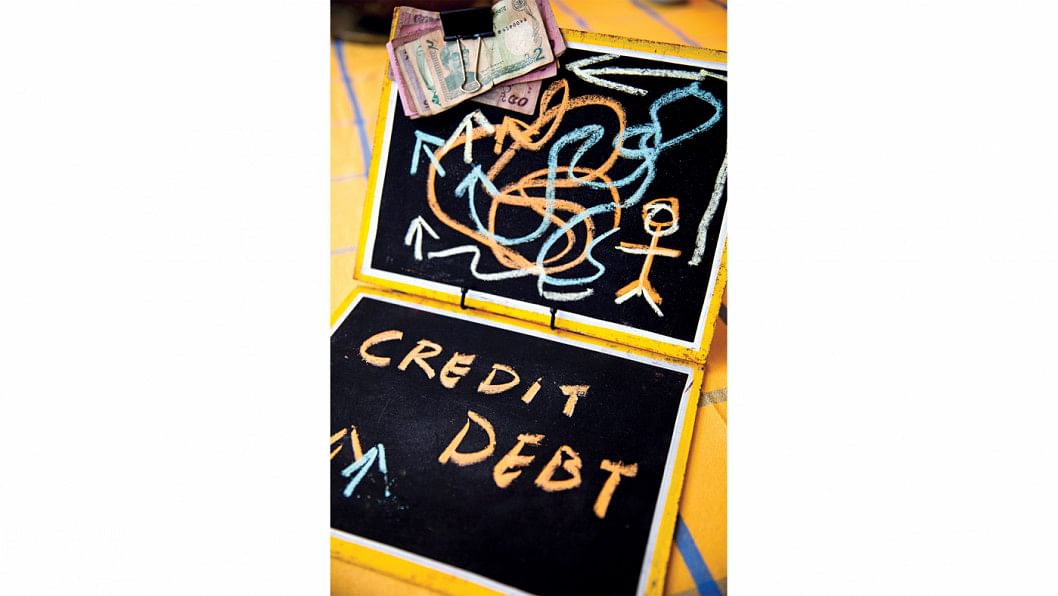How to avoid a debt trap in 2023

The debt trap is a serious issue and has a lot of relevance to our current financial situation. Even after three or so tumultuous years, both in terms of COVID-19 and an economic slowdown, we feel it is not over yet.
I remember most of my working life, even after being a banker, I had always been wary about taking loans. As a staff member, I was entitled to take loans at very low interest rates, and yet, I shied away from them. The simple reason was in my mind that once I took a loan, I would find out how easy it is and this act might become a recurring habit, leading to what one might call 'falling into a trap.'
A debt trap is when you are deeply in debt and find it difficult to service your current repayment obligations. In a situation like this, you are compelled to take new loans in order to repay your existing loan instalments. Before you know it, you have fallen into a difficult situation where the amount of debt you owe spirals out of control. Such a situation typically arises when your debt obligations exceed your repayment capacity.
If your earnings are insufficient to clear your debt, the interest accruing on your outstanding loan amount will start to accumulate quickly. This will eventually lead you to avail fresh loans to clear off the piled-up interest, thereby falling deeper into a debt trap. Falling into the spiral can be an extremely stressful situation, both emotionally and physically. Needless to say, a mismanaged debt will impact your financial well-being, causing many sleepless nights!
During any situation like an economic slowdown, the biggest problem for the average person is inflation, with the possibility of job loss. It increases the living cost and decreases the value of money, which to a great extent, impacts the income of people. During this period of uncertainty, middle-income groups usually have little option other than taking different types of personal loans (overdrafts, loans, credit cards) for meeting up the shortfall of their monthly expenditures. And before long, they usually end up taking several loan benefits from different banks, especially in the form of credit cards. This, in turn, can lead to irregular payment behaviour where one struggles to pay their monthly dues.
Some critical factors you should keep in mind when availing loan facilities are: Focus on budgeting and building up an emergency fund Get creative about savings — find out the different options available Take stock of one's financial priorities Prioritise paying off high-interest debt
On the flip side, loans that the middle-income group are availing as a temporary stopgap to fulfil their monthly expenditures can ultimately be beneficial in increasing their purchasing power and to some extent, supporting their business. This will eventually help to ensure stability in the economy of the country. But the individuals will need to be extra cautious and make sure that their debt-to-burden ratio does not go to a level that makes it difficult for them to service their debts.
Banks should come out with different mechanisms to ensure the smooth repayment of these loans. As before, loan re-scheduling, stimulus packages, etc. can be introduced to ensure the positive repayment behaviour of these customers.
If you can manage your situation in a structured way, it can help you achieve your financial aspirations and help you minimise your stress. Make a list of your loans and prioritise them according to their size and cost. While small loans can be managed easily; large, expensive loans like home loans are more formidable.
If you have several expensive loans and cannot handle all of them at the same time, the best way to reduce stress is to select loans that have a higher cost and clear them off first. These loans can be your unsecured loans, such as credit card bills. However, other loans such as home loans and education loans that offer tax benefits also remain a burden to be cleared off. The most important tasks are to bring your financial situation under control and balance your household budget. Stay away from future debts, make timely payments of Equated Monthly Instalments (EMIs), and eliminate unnecessary expenses.
If you have multiple loans with different tenures, you must talk to your bank to consolidate these loans into one and restructure the interest and tenure accordingly. Doing this will help you lower the interest rate. You may also negotiate with the bank to increase the tenure in order to reduce the magnitude of the EMI. Being a financially disciplined investor will help you save money and stop going deep into debt.
Photo: Sazzad Ibne Sayed
The writer is the former CEO, Standard Chartered Bank, Afghanistan

 For all latest news, follow The Daily Star's Google News channel.
For all latest news, follow The Daily Star's Google News channel. 



Comments